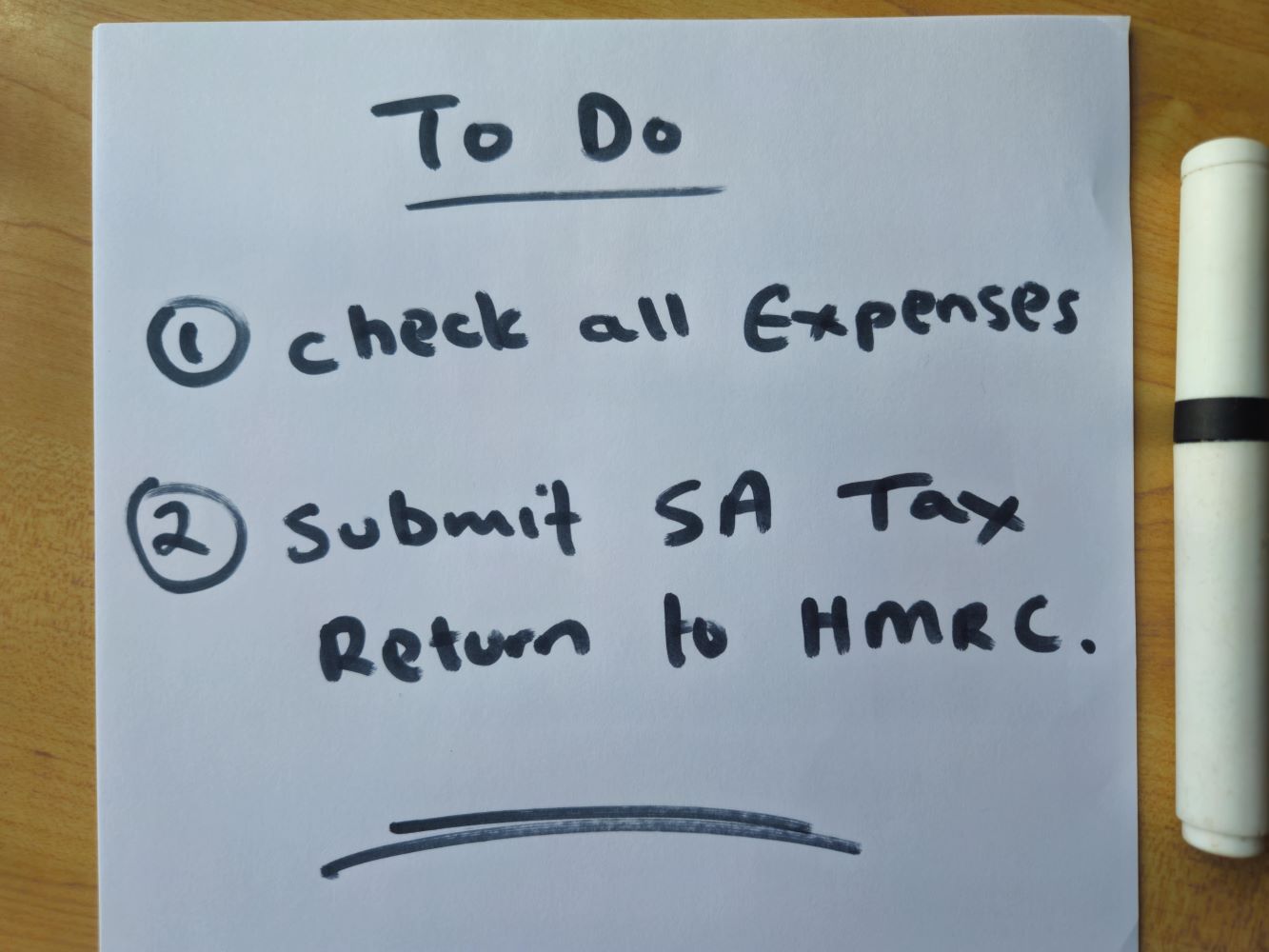It’s that time of year again. You know — that time when, after eight or nine months of “meaning to get around” to filing your Tax Return, you suddenly realise you haven’t done it yet, and the deadline’s nearly here.
So how can you make sure you get your Return in by the 31st this year — and avoid it being a rush next year?
Prefer to watch? Here’s a quick video that walks you through what a Self-Assessment Tax Return is, who needs to file one, and how to avoid common mistakes:
31st January — The Self-Assessment Deadline
If you’re Self-Employed and earned more than £1,000 in the 2023-2024 tax year, you’ll need to file a Self-Assessment Tax Return by 11.59 pm on 31st January. This applies to various other groups, too — a business partner in business partnership, sold an asset which increased in value and had to pay Capital Gains Tax or anyone receiving income from renting out a property. If you’re in any doubt, you can check out on the Government’s website whether you’re included.
The bad news is that, if you’re still living in the 20th century and submitting paper returns, you’ve already missed the deadline. However, you have till the 31st to file online Returns.
There are plenty of reasons, though, not to leave it till the last possible moment. Quite apart from the risk of discovering you don’t have a vital piece of information to hand, you also need to make any payments due before midnight on the 31st. This may require moving money around, so it’s best to leave yourself plenty of time, once you know what’s due.
Why You Shouldn’t Miss the Deadline
In 2024, about 12.1 million taxpayers were due to file their Self-Assessment Returns by 31st — but only 11.5 million made it by the deadline, and nearly 33,000 filed in the final hour. Millions are cutting it fine this year. On 6th January, around 5.4 million still hadn’t filed yet.
The problem is that filing late will result in far more than a slap on the wrist from HMRC. Even if you’re one day late, you’ll receive a £100 penalty, and after three months there’ll also be £10 for every day. A further £300 or more can be added after six and twelve months — and, in some cases, you could be fined the total value of your tax bill.
The same applies if you’re late paying your tax. If payment hasn’t been made by midnight on 31st January, HMRC will charge you interest set at 2.5% above the Bank of England base rate.
Making the Deadline Easy
The ideal answer to the last-minute scramble, of course, is to file your Self-Assessment Tax Return as early as possible. You can do so from April onwards, so the best strategy is to pick out a period when you’re likely to be less busy (over the summer holidays, perhaps) and create a timetable for the various things you’ll need to do in preparation for your Return.
This will be far easier if you have the Return done by an Accountant who specialises in Self-Assessment — like Grace Certified Accountants. A good Accountant will go through exactly what you need to supply and when, not to mention having more detailed knowledge of what expenses you can claim in order to legitimately reduce your tax bill.
But what if you’re running out of time for this year? Just get in touch with us, and we’ll make sure you meet that deadline this time — and then we can work with you to ensure you won’t have the same problem next year.
💡 Related Reading: Want to avoid stress next year? Read our simple prep guide for the end of the tax year here: https://gracecertifiedaccountants.co.uk/how-to-prepare-for-the-end-of-the-tax-year-without-the-panic/
